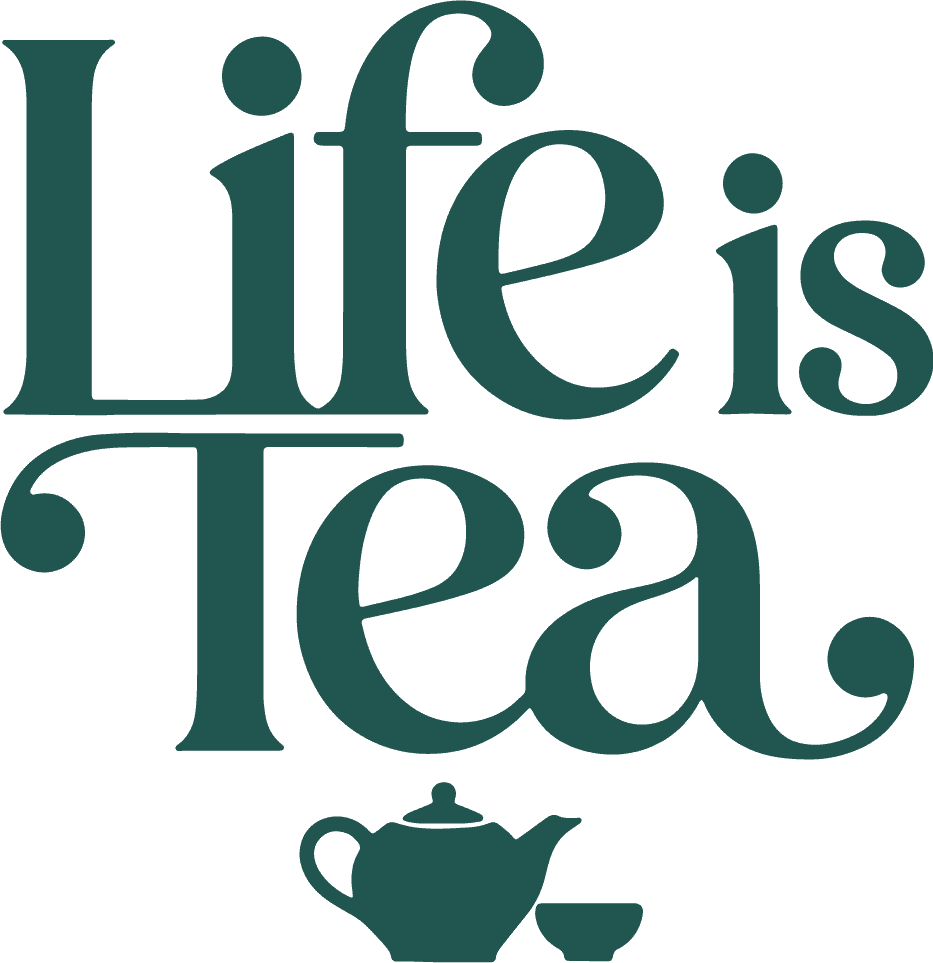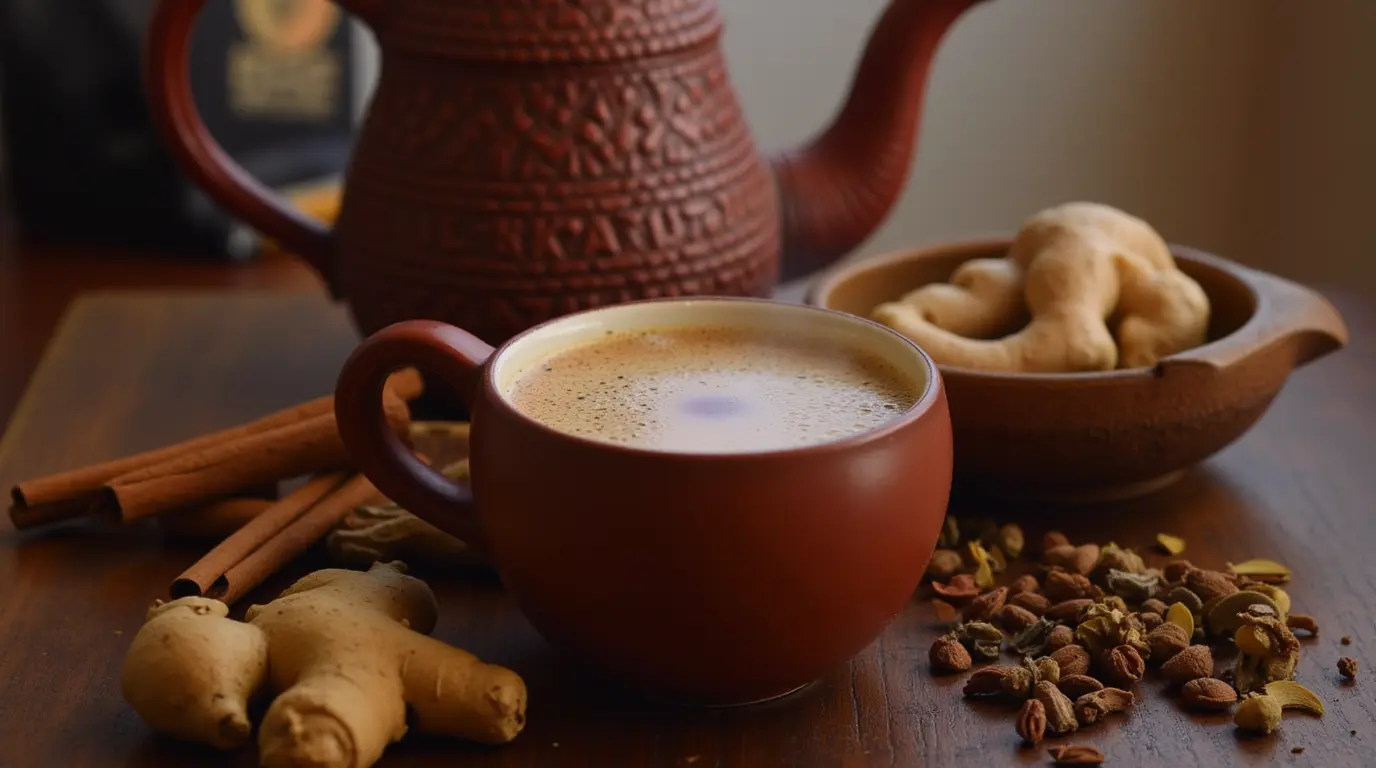Table of Contents
Chai tea is loved worldwide for its rich, spicy taste and health perks. But, many wonder if it has caffeine. We’ll explore chai tea’s caffeine levels, how they vary, and compare it to other caffeinated drinks. We’ll also share tips on controlling caffeine from this tasty tea.
Key Takeaways
- Chai tea does typically contain caffeine, but the amount can vary depending on the tea variety and brewing method used.
- The caffeine content in chai tea is generally lower than that of coffee, but higher than that of black tea.
- Chai tea offers a range of health benefits, including antioxidant properties, but the caffeine can also have potential downsides for some individuals.
- You can adjust the brewing time and choose decaf varieties to manage your caffeine intake from chai tea.
- Chai tea is a versatile beverage that can be enjoyed in moderation as part of a healthy lifestyle.
What is Chai Tea?
Chai tea, also known as masala chai, is a flavorful drink from India. It’s a spiced black tea made with black tea and spices like cinnamon, cardamom, and ginger. Cloves and black pepper are also added.
History and Origins of Chai
Chai tea has a long history in India, where it’s a big part of tea culture. People used to boil black tea with spices to make a warm drink. This was a way to share joy with family and friends.
Traditional Chai Tea Ingredients
The traditional ingredients for masala chai are:
- Black tea leaves
- Whole milk or dairy-free milk alternatives
- Sugar or honey (to taste)
- Cinnamon sticks
- Cardamom pods
- Fresh ginger root
- Whole cloves
- Black peppercorns
These ingredients are simmered to make chai’s bold, aromatic flavor. It’s a mix of sweet and spicy.
Does Chai Tea Have Caffeine?
Chai tea is loved by many around the world. It’s known for its spices and black tea. But, does chai tea have caffeine? Yes, it does, thanks to the black tea base.
The caffeine in chai tea can change based on a few things. These include the black tea type, how it’s brewed, and the spice mix. Usually, an 8-ounce cup has 30-60 milligrams of caffeine. This is similar to a cup of regular black tea.
- The black tea base in chai tea is the primary source of caffeine.
- The spices like cinnamon, ginger, and cardamom don’t change the caffeine much.
- Brewing time and temperature can also affect caffeine levels. Longer times and higher temperatures mean more caffeine.
The caffeine content in chai tea can really vary. This depends on the blend and how it’s made. Some chai teas might have more or less caffeine. Always check the product info or ask your barista for details.
Factors Affecting Caffeine Content in Chai Tea
Making the perfect cup of chai tea is an art. The caffeine content can change based on a few key things. These include the tea variety used and the brewing time and temperature.
Tea Variety Used
The type of black tea in your chai blend matters a lot. Assam and Darjeeling black teas usually have more caffeine. The way tea is made, especially how it’s oxidized, also affects caffeine levels. More oxidized teas often have more caffeine.
Brewing Time and Temperature
- Brewing time: Steeping tea leaves longer means more caffeine is pulled out. Steeping for 4-7 minutes can make your chai tea more caffeinated.
- Brewing temperature: Using water that’s very hot, around 195°F to 205°F, helps get more caffeine out of the tea. Water that’s cooler might not release as much caffeine.
Knowing these factors lets you make chai tea with the caffeine level you want. Whether you need a morning boost or a calm afternoon drink, you can adjust it to fit your needs.
Caffeine Levels in Different Chai Tea Varieties
Not all chai teas have the same amount of caffeine. The caffeine content changes based on the ingredients and how it’s brewed. Let’s explore the caffeine levels in various chai tea options.
Masala chai, the spiced black tea from India, has the most caffeine. This is because it’s made with black tea, which has more caffeine than other teas.
- A typical 8-ounce serving of traditional masala chai can have anywhere from 40 to 120 milligrams of caffeine.
Chai tea lattes have less caffeine. They mix chai spices with milk or alternatives, which dilutes the tea’s caffeine.
- A 12-ounce chai tea latte can contain 25 to 50 milligrams of caffeine.
Herbal chai blends have the least caffeine. They use non-caffeinated bases like rooibos or honeybush.
- Herbal chai blends typically contain less than 5 milligrams of caffeine per 8-ounce serving.
| Chai Tea Variety | Typical Caffeine Content (per 8-ounce serving) |
| Traditional Masala Chai | 40-120 mg |
| Chai Tea Latte | 25-50 mg |
| Herbal Chai Blends | Less than 5 mg |
Knowing the caffeine levels in different chai teas helps you choose based on your caffeine needs.
How Chai Tea Caffeine Compares to Other Beverages
Chai tea has a unique caffeine level compared to coffee and black tea. Knowing these differences helps people choose their caffeine wisely.
Chai Tea vs. Coffee
Coffee is known for its high caffeine, with 95 milligrams in an 8-ounce cup. Chai tea, on the other hand, has 40 to 60 milligrams per 8-ounce cup. This makes chai tea a good choice for those wanting less caffeine but still a tasty drink.
Chai Tea vs. Black Tea
| Beverage | Caffeine Content (per 8 oz) |
| Chai Tea | 40-60 mg |
| Black Tea | 47-90 mg |
The caffeine in chai tea and black tea can change based on the blend and brewing. But, chai tea usually has less caffeine than black tea. This is good for those who want a milder caffeine kick from their tea.
Knowing how chai tea, coffee, and black tea compare in caffeine helps people pick the right drink for their day. It’s all about finding the perfect match for your caffeine needs and taste preferences.
Health Benefits of Chai Tea
Chai tea is more than just a tasty drink. It has many health benefits, including its high antioxidant content.
Antioxidant Properties
Chai tea is full of aromatic spices. Each spice adds its own antioxidants. The health benefits of chai tea are often attributed to its high concentration of antioxidants. These antioxidants fight off harmful free radicals in our bodies.
They help prevent oxidative stress and damage to our cells.
Some of the key antioxidants in chai tea are:
- Polyphenols from the black tea base
- Eugenol from cloves
- Cineole from cardamom
- Gingerol from ginger
Drinking chai tea regularly may boost our immune system. It can also help our heart health and protect our brains. The antioxidants in chai tea make it a great choice for a healthy diet.
| Antioxidant Compound | Health Benefits |
| Polyphenols | Anti-inflammatory, cardiovascular protection, cancer prevention |
| Eugenol | Anti-microbial, analgesic, anti-inflammatory |
| Cineole | Respiratory support, anti-inflammatory, neuroprotective |
| Gingerol | Anti-inflammatory, antioxidant, digestive support |
Potential Downsides of Caffeine in Chai Tea
Chai tea is known for its health benefits, but it also has caffeine. This can be a problem for those who are sensitive to caffeine or drink too much of it. Knowing about these issues helps you enjoy chai tea safely.
The caffeine in chai tea can cause jitteriness, anxiety, and restlessness. Too much caffeine can make these symptoms worse. It can also disrupt sleep, especially if you drink it too close to bedtime.
Another concern is how caffeine affects cardiovascular health. Too much caffeine can increase blood pressure and heart rate. This is a worry for people with heart problems or high blood pressure.
- Jitteriness, anxiety, and restlessness
- Sleep disruptions
- Cardiovascular health concerns
The effects of caffeine in chai tea can differ from person to person. It depends on how sensitive you are, how much caffeine you usually drink, and the type of chai tea. Drinking it in moderation is best. If you’re worried about caffeine’s impact on your health, talk to a doctor.
Tips for Managing Caffeine Intake from Chai Tea
If you love the taste of chai tea but want less caffeine, there are easy ways to do it. You can adjust how long you brew it or pick decaf chai tea. This way, you can enjoy its rich flavors without too much caffeine.
Adjusting Brewing Time
To cut down on caffeine, try brewing your chai tea for less time. Steeping it for 3-5 minutes instead of 5-7 can help. This method lets you enjoy the tea’s flavors without too much caffeine.
Choosing Decaf Chai Tea Varieties
Decaf chai tea is another great choice for those watching their caffeine intake. It’s made by removing most of the caffeine from the tea leaves. Look for high-quality decaf chai to get the best taste.
Using these tips, you can enjoy chai tea without worrying about caffeine. Whether you change the brewing time or pick decaf, you can find a balance that works for you.
Conclusion
This article has given you a detailed look at chai tea’s caffeine content. We explored its history and the ingredients that make it special. We also talked about how brewing time and temperature affect its caffeine levels.
We compared chai tea’s caffeine to coffee and black tea. This helps you understand its place in the world of caffeine. We also discussed the good and bad sides of caffeine in chai tea, so you can choose wisely.
If you love chai tea or just want to know more about it, this guide is for you. It helps you understand chai tea and manage your caffeine intake. You can enjoy its flavors while keeping your caffeine levels in check, based on your health goals.
FAQ
Does chai tea have caffeine?
Yes, chai tea does contain caffeine. It’s made with black tea, which has caffeine.
How much caffeine is in a chai tea latte?
The caffeine in a chai tea latte varies. It depends on the recipe and black tea type. Generally, a 12-ounce latte has 40-120 mg of caffeine.
Is chai tea caffeinated?
Yes, chai tea is caffeinated. The black tea base in traditional recipes has caffeine. The amount can vary.
What are the benefits of drinking chai tea?
Chai tea has several health benefits. It’s rich in antioxidants. These can protect against oxidative stress and support well-being.
What are the potential downsides of the caffeine in chai tea?
Chai tea’s caffeine can have downsides. It may cause jitteriness, anxiety, and insomnia in sensitive people or those drinking too much.
How can I manage my caffeine intake from chai tea?
To control caffeine from chai tea, try brewing it for less time. You can also choose decaf chai tea. This way, you can enjoy the taste without caffeine.

